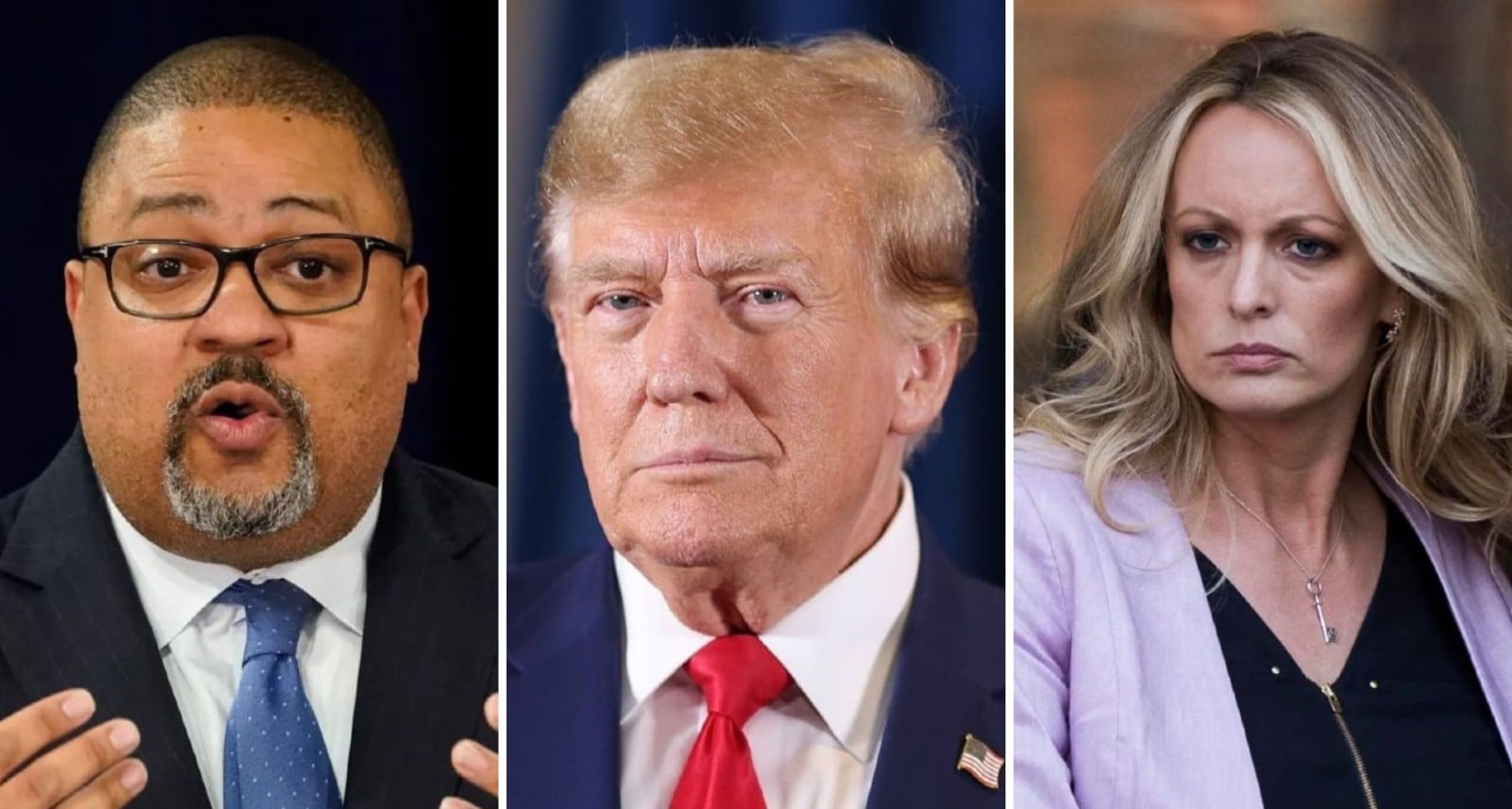OPINION: This article may contain commentary which reflects the author's opinion.
Day 18 of the historic first criminal proceedings against former President Donald Trump is approaching in the New York hush money trial. However, legal experts say prosecutors have not yet determined what “other crime” is required to raise misdemeanor charges to a felony conviction.
On Thursday, Michael Cohen, the former president’s lawyer and fixer, was back on the witness stand for his second cross-examination by the defense team. The trial is proceeding smoothly and ahead of schedule. Still, there is a clear flaw in the prosecution’s case that Trump is guilty of 34 felonies related to first-degree business record falsifications.
Former federal prosecutor Katie Cherkasky told the Washington Examiner that the challenge facing prosecutors is that they have to establish the misdemeanor of falsifying business records before proving the felony “escalator,” or the allegation that the documents were falsified with the intent to conceal or assist in the commission of another offense.
By the time the prosecution wrapped up questioning Cohen on Tuesday morning, they seemed to be heavily relying on Cohen’s decision to stop being loyal to Trump after entering a guilty plea to federal charges in 2018. However, they had not explicitly stated what further crime Trump hoped to facilitate by allegedly falsifying records. Regarding Stormy Daniels’s $130,000 payment to conceal her account of a purported sexual encounter with Trump, Cohen entered a plea.
Prosecutors claim that Trump may be guilty of several potential offenses, including breaking the Federal Election Campaign Act, which Cohen admitted to breaking when he entered a guilty plea.
However, Cherkasky stated that she and several other attorneys “don’t think that you can incorporate a federal offense that isn’t within the jurisdiction of the New York court as the escalating offense,” and that if the jury found Trump guilty, doing so would present a more significant challenge for an appeals court.
Let me get this straight…
• Michael Cohen recorded his client [Donald Trump] without his knowledge, and was getting paid to ADVISE HIS CLIENT…
• that recording not only proves Donald Trump had no clue what the hell Michael Cohen was talking about, it proves Michael Cohen… pic.twitter.com/IgMIC1SIGu
— MJTruthUltra (@MJTruthUltra) May 13, 2024
Michael cohen tape recording in trump court case today #MichaelCohen #TrumpTrial #trump pic.twitter.com/kL92Nn3T9h
— Justin (@letfreedomrinng) May 13, 2024
With the assistance of a COVID-19-era statute that permitted the state to extend its statute of limitations by one year, elected Democrat Alvin Bragg, the district attorney for Manhattan, brought the indictment against Trump in April 2023.
Due to the two-year statute of limitations for misdemeanors like fabricating business records, prosecutors would not have been able to prosecute Trump in the absence of that modification.
The Examiner reported: “Simply put, Bragg’s team is seeking to prove two underlying allegations against Trump: that the 11 checks he paid to Cohen in 2017 were misclassified as ‘legal expenses’ to cover up hush money payments and that it was done for electoral reasons rather than merely to save Trump from personal embarrassment. The former president has denied Daniels’s allegations about the alleged affair and contends the lump $420,000 amount he paid Cohen was for legal work.”
Attorney Joshua Steinglass stated that Section 17-152 of New York law, which pertains to conspiracies to influence or obstruct elections, is the “primary” offense that his office is attempting to establish to establish a conspiracy.
Adding to the confusion, Bragg did not accuse Trump of any crimes pertaining to the election and made indications about three additional “potential object offenses” that Trump might have committed.
Former federal prosecutor David Sklansky says that the 12-member jury’s charge to determine “beyond a reasonable doubt” that the purportedly false business records were an attempt to conceal another crime presents another “potential problem.”
Attorney Joshua Steinglass stated that Section 17-152 of New York law, which pertains to conspiracies to influence or obstruct elections, is the “primary” offense that his office is attempting to establish in order to establish a conspiracy. Adding to the confusion, Bragg did not accuse Trump of any crimes pertaining to the election and made indications about three additional “potential object offenses” that Trump might have committed.
Former federal prosecutor David Sklansky says that the 12-member jury’s charge to determine “beyond a reasonable doubt” that the purportedly false business records were an attempt to conceal another crime presents another “potential problem.”
“If I had to bet, I would say that the jury ultimately will be convinced that this was done to cover up another crime, but the theory that they have to follow in order to find that is a little convoluted, and I think that even for most lawyers who have been following the trial, it’s been a little difficult to figure out exactly what the DA’s theory is,” Sklansky said in a recent interview.
Additionally, prosecutors must deal with the fact that the Federal Election Commission ended its investigation into whether Trump broke election law by paying Daniels in May 2021 if they plan to rely on Cohen’s guilty plea in 2018 to the campaign finance violation.
Furthermore, after looking into the payment, the Biden administration’s Justice Department decided not to prosecute Trump for any crimes associated with it.
When it comes time for a verdict in the case—which could happen as soon as the first week of June—presiding Judge Juan Merchan may give the jury instructions, according to Cherkasky, which could reveal the full nature of the “other crime” that prosecutors are attempting to prove Trump committed.
Moreover, Cherkasky said Bragg’s team will likely argue for “very specific instructions that make it easy to prove their case … and then the defense is going to have their chance to argue against it.”
“The judge’s instructions are going to be very critical. That’s going to tell us all of the answers to these things in terms of how the judge is interpreting this,” Cherkasky said.
